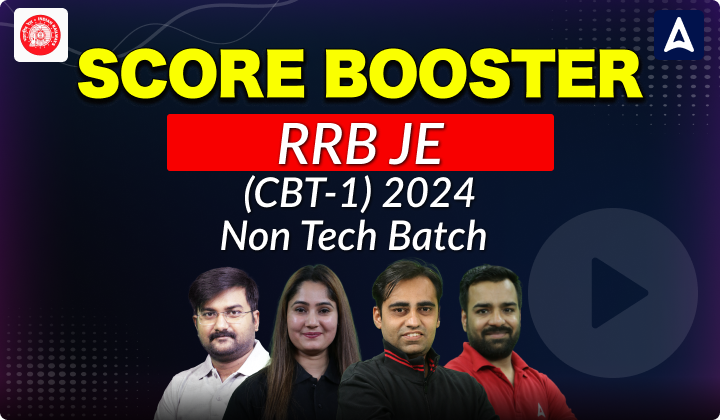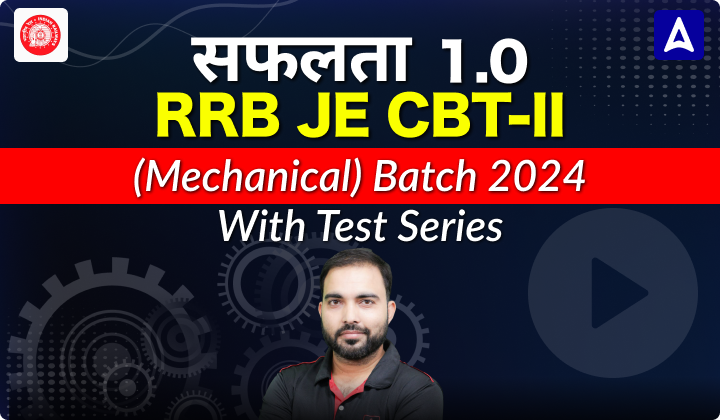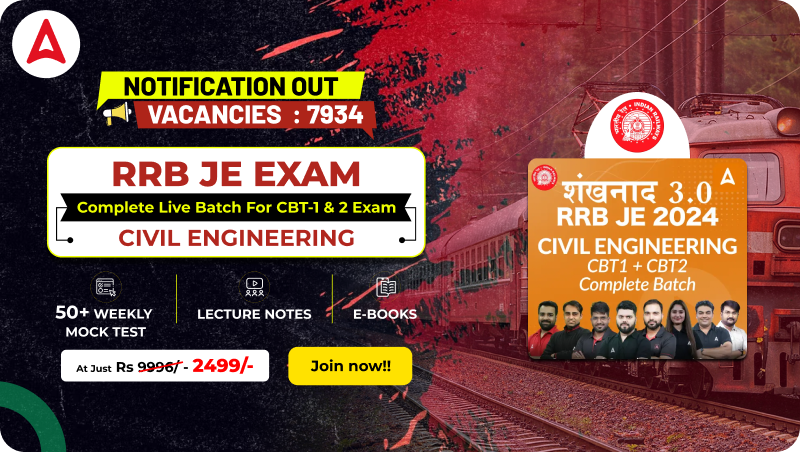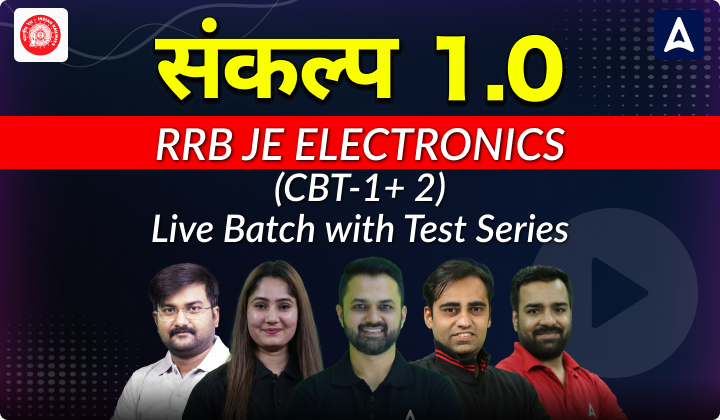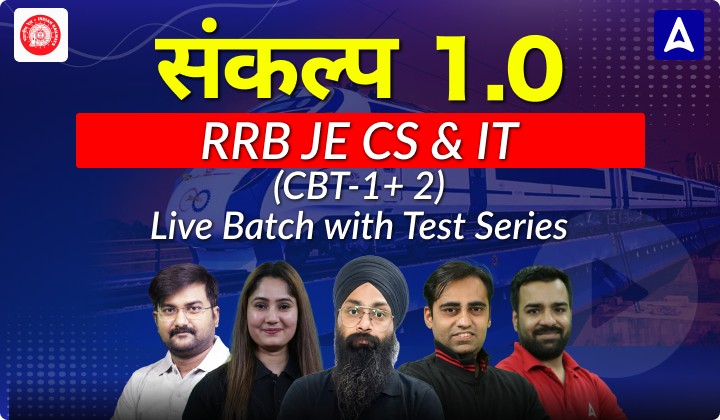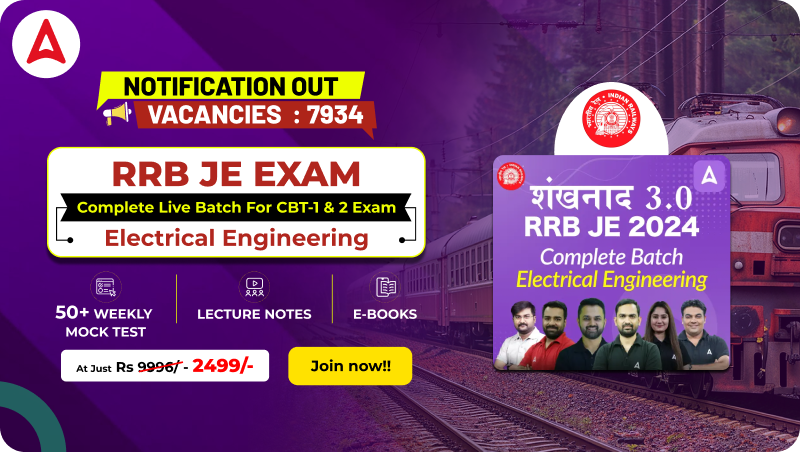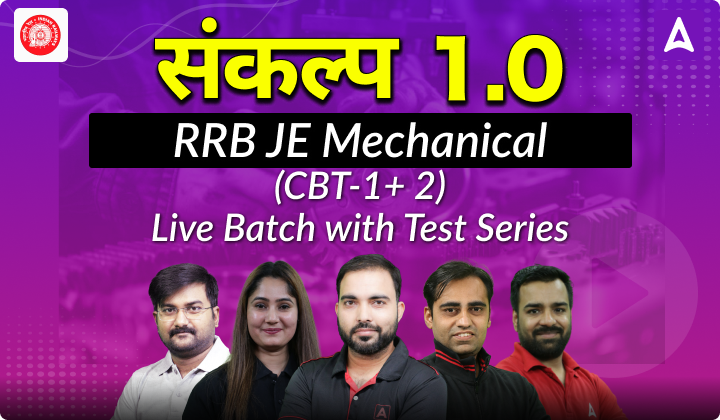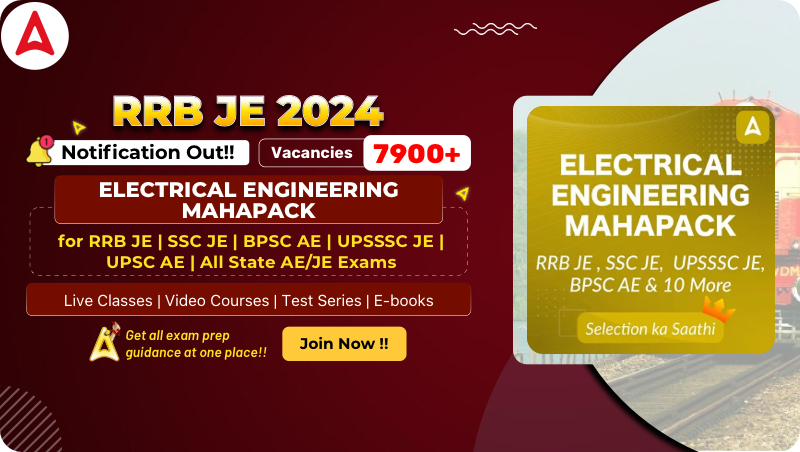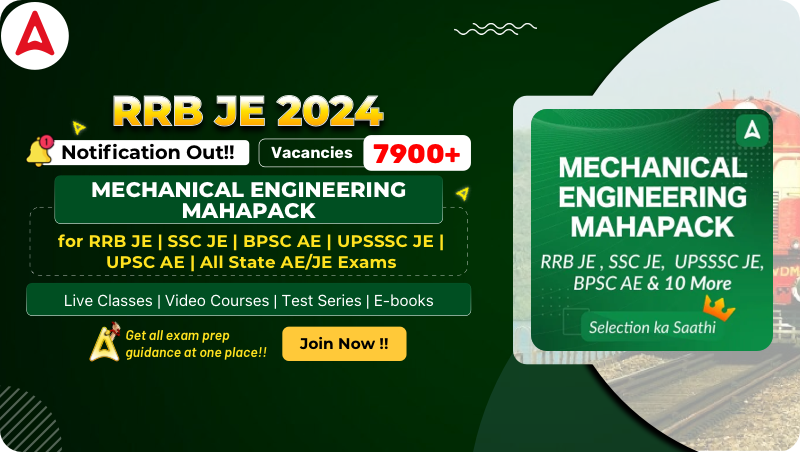Table of Contents
Candidates studying Electrical Engineering need to know the syllabus well to plan how they’ll prepare for their exams. To prepare properly for the SSC JE exam, it’s important to understand the SSC JE Electrical Syllabus 2024. This article has the full syllabus for both Tier 1 and Tier 2 exams. Make sure to read through it to know what to study, and bookmark this website for more updates on Engineering Exams.
SSC JE Electrical Syllabus 2024-Overview
Candidates can check the key highlights related to SSC JE Electrical Syllabus 2024 in the below section:
| SSC JE Electrical Syllabus 2024 | |
| Conducting Authority | Staff Selection Commission (SSC) |
| Exam Name | SSC Junior Engineer (SSC JE) |
| Total Posts | 1765 |
| Frequency Of Exam | Once A Year |
| Level Of Exam | National Level Exam |
| Application Mode | Online |
| Category | Engineering Jobs |
| Exam Mode | Online |
| SSC JE Electrical Syllabus | Available Now |
| Selection Process | Computer-Based Test ( Both Paper 1 and Paper 2) |
| SSC JE 2024 Official Website | www.ssc.gov.in |
SSC JE Electrical Engineering Syllabus 2024
The commission released the SSC JE Electrical Engineering Syllabus 2024 on its official website along with the detailed exam notification. The SSC JE Electrical Syllabus 2024 is prescribed under the official notification pdf. For the ease of candidates, we have discussed the detailed SSC JE Electrical Engineering Syllabus 2024 here. So, refer to this section to understand the complete syllabus for the SSC JE Electrical branch:
Life of Junior Engineer After Clearing SSC JE
Tier 1 Electrical Syllabus For SSC JE Exam
The Tier 1 syllabus of the SSC JE Electrical Exam 2024 is given below:
- General Intelligence & Reasoning
- General Awareness
- General Engineering:
Part A: (Civil Engineering & Structural Engineering)
Part B: (Electrical Engineering)
Part C: (Mechanical Engineering)
Download SSC JE Previous Year Question Papers
General Intelligence and Reasoning Topics
The Syllabus for the General Intelligence & Reasoning section in the SSC JE Exam is given below:
- Classification
- Analogy
- Coding-Decoding
- Paper Folding Method
- Matrix
- Word Formation
- Venn Diagram
- Direction and Distance
- Blood Relations
- Series
- Verbal reasoning
- Non-Verbal Reasoning
- Seating Arrangement
- Analogies,
- Similarities,
- Differences,
- Space visualization,
- Problem-solving,
- Analysis,
- Judgement,
- Decision making,
- Visual memory,
- Discrimination,
- Observation,
- Relationship concepts,
- Arithmetical reasoning,
- Verbal and figure classification,
- Arithmetical number series
- Arithmetical computations
General Awareness Topics
The SSC JE General Awareness Syllabus 2024 is given below:
- Static General Knowledge
- Science
- Current Affairs
- Sports
- Books and Authors
- Important Schemes
- Portfolios
- People in the News
- History
- Culture
- Geography
- Economic
- General Polity and
- Scientific Research
General Engineering Topics
The topics included in the SSC JE Electrical Syllabus 2024 are below:
- Basic concepts
- Circuit law
- AC Fundamentals
- Magnetic Circuit
- Electrical Machines
- Utilization and Electrical Energy
- Transmission and Distribution
- Estimation and Costing
- Basic Electronics
- Generation
- Fractional Kilowatt Motors and single-phase induction Motors
- Measurement and Measuring instruments
- Synchronous Machines
Tier 2 Electrical Syllabus For SSC JE 2024
The SSC Junior Engineer 2024 Tier 2 Exam paper consists of three parts. The SSC JE Tier 2 Exam will be an objective type exam of 300 marks of 2 hours duration. Candidates can opt for any one out of three parts of the SSC JE Tier 2 Exam 2024. The SSC JE Syllabus 2024 includes the following subjects:
- Part-A (Civil Engineering & Structural Engineering)
- Part-B (Electrical Engineering)
- Part-C (Mechanical Engineering)
Electrical Engineering Topics
The topics and sub-topics of the SSC JE Syllabus for Electrical Engineering are given below:
Basic Concepts (Weightage: 10-12 marks)
- Concepts of resistance,
- inductance,
- capacitance, and various factors affecting them.
- Concepts of current,
- voltage,
- power,
- energy, and their units.
- Circuit law: Kirchhoff‟s law,
- Simple Circuit solution using network theorems.
- Magnetic Circuit: Concepts of flux,
- mmf,
- reluctance,
- Different kinds of magnetic materials,
- Magnetic calculations for conductors of different configurations e.g. straight, circular, solenoidal, etc.
- Electromagnetic induction, self, and mutual induction.
AC Fundamentals (Weightage: 7-8 marks)
- Instantaneous,
- peak,
- R.M.S., and average values of alternating waves.
- Representation of sinusoidal waveform,
- simple series and parallel AC Circuits consisting of R.L. and C,
- Resonance,
- Tank Circuit.
- Poly Phase system – star and delta connection,
- 3 phase power,
- DC and sinusoidal response of R-Land R-C circuit.
Measurement and Measuring Instruments (Weightage: 12-15 marks)
- Measurement of power (1 phase and 3 phase, both active and re-active) and energy,
- 2-wattmeter method of 3-phase power measurement.
- Measurement of frequency and phase angle.
- Ammeter and voltmeter (both moving oil and moving iron type),
- the extension of the range wattmeter,
- Multimeters,
- Megger,
- Energy meter AC Bridges.
- Use of CRO,
- Signal Generator,
- CT, PT, and their uses.
- Earth Fault detection.
Electrical Machines
- D.C. Machine – Construction,
- Basic Principles of D.C. motors and generators, their characteristics, speed control, and starting of D.C. Motors.
- Method of braking motor, Loss, and efficiency of D.C. Machines.
- 1-phase and 3-phase transformers – Construction, Principles of operation,
- equivalent circuit,
- voltage regulation,
- O.C. and S.C. Tests, Losses, and Efficiency.
- Effect of voltage,
- frequency, and waveform on losses.
- Parallel operation of 1-phase/3 phase transformers.
- Autotransformers.
- 3-phase induction motors,
- rotating magnetic field,
- the principle of operation,
- equivalent circuit,
- torque-speed characteristics, and starting and speed control of 3-phase induction motors.
- Methods of braking,
- the effect of voltage, and frequency variation on torque speed characteristics.
Fractional Kilowatt Motors and Single Phase Induction Motors
- Characteristics and applications.
- Synchronous Machines – Generation of 3-phase e.m.f. armature reaction,
- voltage regulation,
- parallel operation of two alternators,
- synchronizing,
- control of active and reactive power.
- Starting and applications of synchronous motors.
Generation, Transmission, and Distribution (Weightage: 12-15 marks)
- Power factor improvement,
- various types of tariffs,
- types of faults,
- short circuit current for symmetrical faults.
- Switchgears – the rating of circuit breakers,
- Principles of arc extinction by oil and air,
- H.R.C. Fuses,
- Protection against earth leakage / over current, etc.
- Buchholtz relay,
- Merz-Price system of protection of generators & transformers,
- protection of feeders and bus bars.
- Lightning arresters,
- various transmission and distribution systems,
- comparison of conductor materials,
- the efficiency of the different systems.
- Cable – Different types of cables,
- cable rating, and derating factor.
- Different types of power stations,
- Load factor,
- diversity factor,
- demand factor,
- cost of generation,
- inter-connection of power stations.
Estimation and Costing (Weightage: 6-8 marks)
- Estimation of lighting scheme,
- electric installation of machines, and relevant IE rules.
- Earthing practices and IE Rules.
- Utilization of Electrical Energy: Illumination,
- Electric heating,
- Electric welding,
- Electroplating,
- Electric drives and motors.
Utilization of Electrical Energy
- Illumination
- Electric heating
- Electric welding
- Electroplating
- Electric drives and motors.
Basic Electronics (Weightage: 12-15 marks)
- Working on various electronic devices e.g. P N Junction diodes, Transistors (NPN and PNP type) BJT, and JFET.
- Simple circuits using these devices.
SSC JE 2024 Exam Pattern
The aspirants targeting to crack the SSC JE Exam 2024, must check the exam pattern briefly to understand the blueprint of the question paper by knowing the number of questions, maximum marks, exam duration, marking scheme, etc.
The SSC JE Exam 2024 will consist of two papers which are Paper I and Paper II. SSC JE Exam 2024 will be conducted in online mode which has a negative marking of 0.33 marks for each wrong answer. You can check the detailed SSC JE Syllabus 2024 along with the Exam Pattern in the below section:
SSC Junior Engineer Exam Pattern 2024
SSC JE Exam 2024 will have Two Tiers. The SSC JE Exam Pattern for Tier 1 and Tier 2 is given below in the table format for the candidates to refer to:
| No. of Tier | SSC JE Exam Type | SSC JE Exam Mode |
| Tier 1 | Objective Multiple Choice | CBT (Online) |
| Tier 2 | Objective Multiple Choice | CBT (Online) |
Exam Pattern For Paper I
The SSC JE Exam Pattern 2024 for Paper I is tabulated below for the reference of candidates:
| SSC JE Exam Pattern For Paper 1 | |||
| Papers | No. Of Questions | Maximum Marks | Duration |
| General Intelligence & Reasoning | 50 | 50 | 2 Hrs. |
| General Awareness | 50 | 50 | |
| Part-B General Engineering (Electrical) | 100 | 100 | |
| Total | 200 | 200 | |
Exam Pattern For Paper II
The SSC JE Exam Pattern 2024 for Paper II is prescribed below in a tabular manner:
| Paper 2 | Questions | Marks | Time |
| Part- B General Engineering (Electrical) | 100 | 300 | 2 Hrs. |

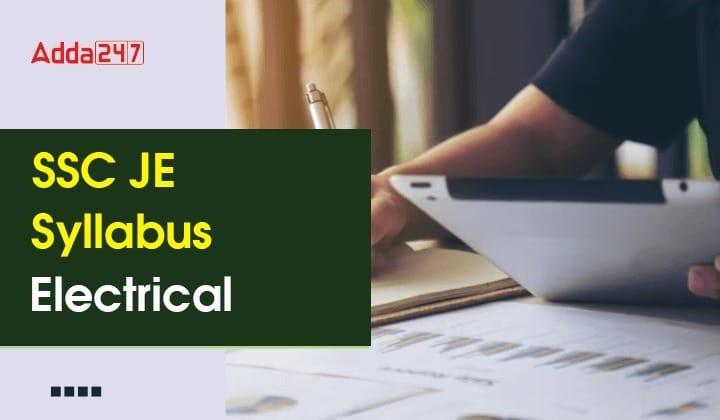
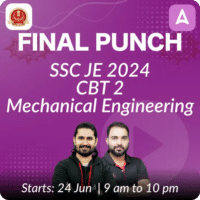

 NALCO Non-Executive Recruitment 2024 Not...
NALCO Non-Executive Recruitment 2024 Not...
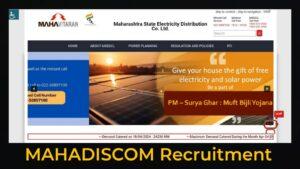 MAHADISCOM Recruitment 2024 Out, Apply O...
MAHADISCOM Recruitment 2024 Out, Apply O...
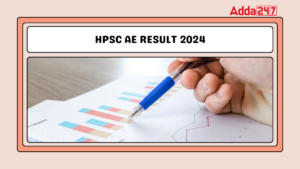 HPSC AE Result 2024 Out, Direct Link to ...
HPSC AE Result 2024 Out, Direct Link to ...

